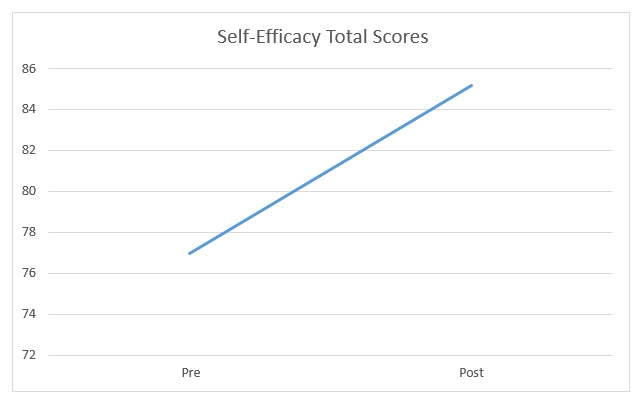In conjunction with our theme of rebirth and post-traumatic growth, this month’s “Notable Numbers” focuses on Self-Efficacy.
When helping kids cope with trauma, clinicians often only look at whether their symptoms are decreasing. That’s a great goal, but there are so many other things to help indicate that children are getting better.
Here at Project CONTACT, we are tracking our participating youth’s levels of Self-Efficacy – their perceptions as to whether they believe they can carry out actions to get the things that they want in life. In general, people who have high levels of self-efficacy are more resilient and less likely to have PTSD symptoms.
We use the Self-Efficacy Questionnaire for Children (SEQ-C) before and after treatment to assess this trait. Overall, we’re seeing great results, with kids averaging an 8-point improvement on their total self-efficacy scores (Mpre = 77.0, Mpost = 85.2). This is a significant difference, t(37)=3.68, p <.001, Cohen’s D = .596.

Therefore, we can conclude that in general, kids who participate in Project CONTACT have improved belief in their abilities, allowing them to face new beginnings with an increased feeling of confidence in themselves.

